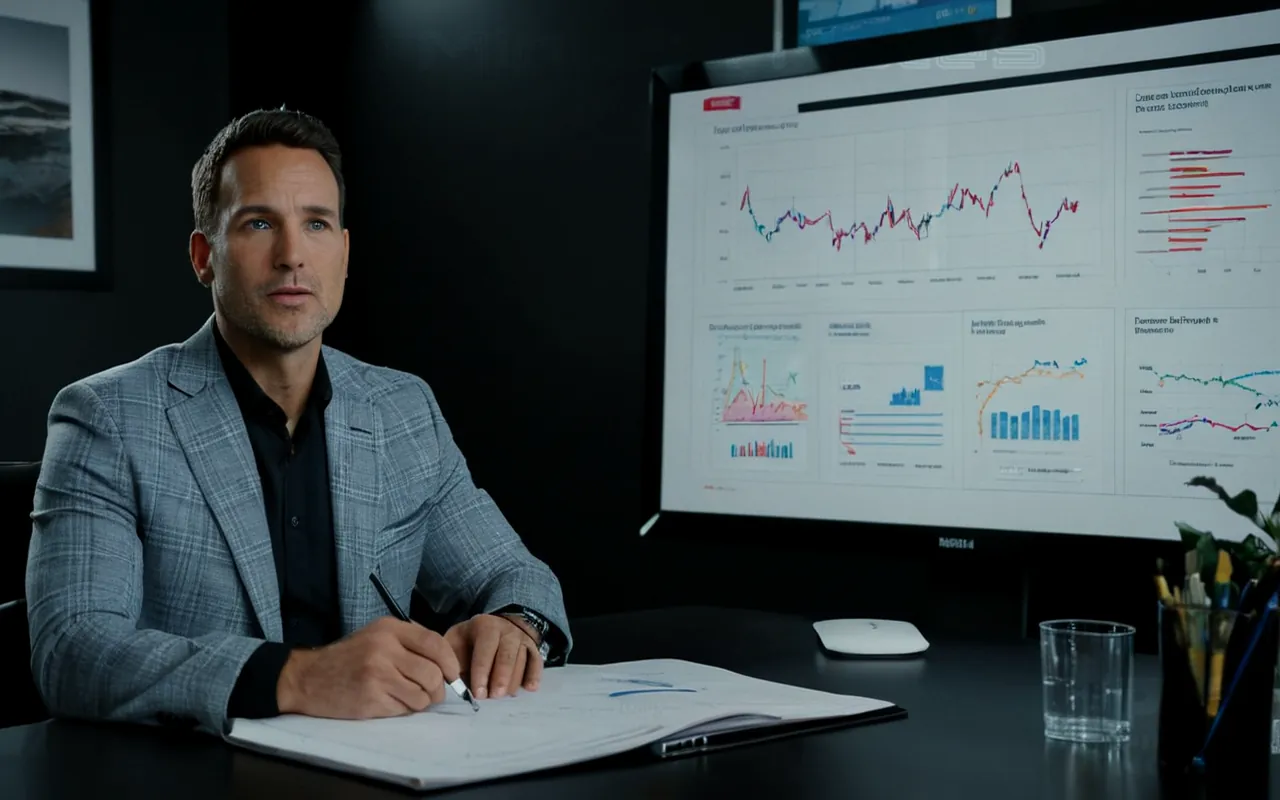Mastering Competence, Ethics, and Independence for Professional Success

As professionals, we often focus on developing our skills and knowledge, but overlook the importance of ethical competence in achieving success. In this article, we will explore how mastering not only technical skills but also moral principles is essential for delivering quality services and building trust with clients and colleagues.
We will delve into the world of competence ethics, examining how having a strong understanding of both the requirements of our profession and the expectations of society can help us make informed decisions that drive positive outcomes. By combining technical expertise with sound judgment, we can demonstrate our value as professionals and enhance our reputation in the process.
Through this article, we will discuss competence in ethics, highlighting the importance of self-awareness, integrity, and accountability in our work. We will explore practical strategies for developing and maintaining these qualities, so that you can feel confident in your ability to navigate complex situations with confidence and authority.
- Competence: The Foundation of Professional Excellence
- Ethical Practice: A Guide to Integrity and Accountability
- Going It Alone: Navigating Independence in the Workplace
- Mastering Self-Management for Greater Autonomy
- Building Trust and Credibility with Clients and Colleagues
- Effective Communication as a Key to Success
- Managing Risk and Responsibility with Confidence
- Conclusion
- Video about Mastering Competence, Ethics, and Independence for Professional Success
Competence: The Foundation of Professional Excellence

In any profession, competence is the fundamental building block that enables individuals to excel and deliver high-quality results. It encompasses a range of skills, knowledge, and experiences necessary to perform tasks efficiently and safely. Developing competence requires dedication, hard work, and a commitment to ongoing learning and professional development. By mastering these essential skills and applying them in real-world situations, professionals can establish themselves as reliable, trustworthy, and effective practitioners.
Ethical competence, which involves the integration of technical expertise with moral principles and values, is critical for ensuring that professionals operate within a framework of integrity and accountability. This means not only possessing the necessary knowledge and skills but also being aware of the ethical implications of one's actions and decisions. By combining competence ethics, which highlights the importance of upholding professional standards and codes of conduct, with practical experience and expertise, individuals can establish themselves as leaders in their field.
In any profession, demonstrating competence is not enough; professionals must also demonstrate a commitment to competence in ethics. This involves being proactive in maintaining high levels of integrity, accountability, and professionalism at all times. By prioritizing these values and integrating them into every aspect of one's work, individuals can establish themselves as trusted advisors and authorities in their field, known for delivering exceptional results while upholding the highest standards of professionalism.
Ethical Practice: A Guide to Integrity and Accountability

In any profession or industry, adherence to ethical practice is paramount. This encompasses not only compliance with laws, regulations, and standards but also a deep-seated commitment to doing what is right in all interactions and transactions. As professionals strive for excellence, it is essential to integrate ethics into competence, ensuring that their skills and expertise are applied with integrity and a strong moral compass.
In this context, competence ethics take center stage, as individuals and organizations alike must prioritize transparency, accountability, and responsibility in all dealings. This demands ongoing education, training, and self-reflection to stay abreast of evolving best practices and emerging issues that may impact their work. Ultimately, the pursuit of competence in ethics is a continuous process that fosters trust, credibility, and long-term success in any professional endeavor.
To cultivate this mindset, professionals must prioritize honesty, fairness, and respect for others' rights and dignity. This commitment to ethical practice forms the bedrock upon which effective communication, collaboration, and problem-solving are built. By integrating ethics into competence, individuals can transcend mere technical proficiency and become truly exceptional in their field – a distinction that sets them apart as leaders, innovators, and role models for others to follow.
Going It Alone: Navigating Independence in the Workplace

In today's fast-paced and often autonomous work environments, many professionals find themselves working independently or as part of small teams. This shift towards self-directed work requires individuals to possess a unique blend of skills, knowledge, and personal qualities. At its core, going it alone is about being able to operate effectively without constant supervision or guidance. However, this independence also comes with great responsibility, as professionals must ensure that their work meets the highest standards of quality, safety, and integrity.
To excel in an independent work setting, professionals must possess a strong foundation of ethical competence, which involves not only adhering to established codes of conduct but also staying up-to-date with changing laws, regulations, and industry standards. This requires ongoing education and training to stay current on the latest best practices and technologies. By combining this competence in ethics with technical skills and expertise, individuals can build trust with clients, colleagues, and stakeholders while delivering exceptional results.
In addition to technical abilities and a strong moral compass, professionals who work independently must also be adept at managing their time, resources, and priorities effectively. This involves being proactive, adaptable, and resilient in the face of challenges or unexpected setbacks. By mastering these skills and embracing a culture of competence ethics, individuals can achieve true independence while upholding the highest standards of professionalism and integrity.
Mastering Self-Management for Greater Autonomy

As professionals strive for independence, self-management becomes a crucial skillset to master. It involves taking ownership of one's time, resources, and decisions, allowing individuals to operate with greater autonomy. By developing effective self-management habits, professionals can optimize their productivity, prioritize tasks more efficiently, and make timely decisions that align with their values and goals.
In this context, ethical competence is not just about possessing the right skills or knowledge but also about applying them in a way that respects the well-being of all stakeholders. Professionals who excel at self-management understand the importance of competence ethics, which means integrating ethical principles into every aspect of their work. This includes being transparent, accountable, and responsible in decision-making and service delivery.
To truly master competence in ethics, professionals must prioritize ongoing learning, reflection, and self-improvement. They should continually update their knowledge and skills to stay relevant and effective in an ever-changing environment. By doing so, they can maintain a strong reputation built on trustworthiness, reliability, and professionalism – essential qualities for achieving competence in ethics that ultimately contributes to professional success.
Building Trust and Credibility with Clients and Colleagues

Establishing trust and credibility is fundamental to professional success. As a self-reliant individual or small team, it's crucial to demonstrate ethical competence in all aspects of work. This involves not only possessing the necessary skills and knowledge but also upholding the highest standards of integrity and morality. By consistently delivering high-quality results while adhering to professional codes of conduct, you can build a strong reputation among clients and colleagues alike.
In today's fast-paced business environment, competence ethics are increasingly important. Clients expect professionals to not only possess technical expertise but also to navigate complex situations with sensitivity and empathy. Demonstrating competence in ethics requires a deep understanding of the impact of decisions on stakeholders and a commitment to transparency and accountability. By embracing this mindset, you can foster trust and credibility among clients, which in turn drives business success.
To establish yourself as an authority in your field, focus on developing a reputation built on competence ethics. This means consistently demonstrating expertise while upholding the highest standards of integrity and morality. By doing so, you'll not only attract new clients but also retain existing ones who value your professional judgment and expertise. Remember, building trust and credibility is an ongoing process that requires commitment to excellence and a strong code of conduct.
Effective Communication as a Key to Success

Effective communication is a vital aspect of professional success, particularly for those who strive for competent and independent practice. As professionals navigate complex situations and stakeholder relationships, their ability to clearly convey ideas, listen actively, and manage conflict becomes essential. To excel in this arena, it's crucial to master not only the technical aspects of one's profession but also the soft skills that underpin effective collaboration.
In the context of ethical competence, communication plays a pivotal role in upholding moral principles and professional standards. When individuals demonstrate competence ethics, they showcase their ability to navigate nuanced situations with empathy, respect, and integrity. This, in turn, fosters trust among colleagues, clients, or customers, which is critical for building long-term relationships and achieving lasting success.
To achieve this level of proficiency, professionals must prioritize competence in ethics as a fundamental aspect of their skillset. By doing so, they will be better equipped to communicate effectively, make informed decisions, and drive meaningful outcomes that benefit all stakeholders. As individuals who value independence and expertise, we recognize the significance of effective communication in propelling our careers forward and leaving a lasting impact on our respective fields.
Managing Risk and Responsibility with Confidence

As professionals navigate their careers, they must develop a strong foundation of ethical competence that guides their decision-making and actions. This involves understanding the intricacies of professional conduct, staying up-to-date on industry developments, and consistently applying principles of integrity and accountability. By possessing competence in ethics, individuals can ensure that their work is not only technically sound but also aligned with the highest standards of moral responsibility.
Effective risk management is also crucial for professionals who operate independently or in small teams. When faced with uncertainty or ambiguity, those who have mastered competence, ethics are better equipped to analyze situations, identify potential risks, and develop strategies to mitigate them. This requires a deep understanding of their own strengths and limitations, as well as the ability to navigate complex scenarios with confidence.
In today's fast-paced professional landscape, demonstrating competence in ethics is no longer sufficient; individuals must also be able to take calculated risks, make informed decisions, and adapt to changing circumstances with ease. By combining technical expertise with a strong sense of moral responsibility and a willingness to assume ownership of their actions, professionals can establish themselves as trusted advisors, leaders, and innovators in their respective fields.
Conclusion
Mastering competence, ethics, and independence is essential for professional success. By possessing ethical competence, professionals can deliver high-quality services, make informed decisions, and maintain a strong reputation. The ability to work independently and manage one's own time effectively is also critical in today's fast-paced business environment.
As professionals navigate complex situations and make difficult choices, it is crucial that they prioritize competence ethics. This involves staying up-to-date with industry trends, best practices, and regulatory requirements, while also adhering to a strong moral compass. By doing so, individuals can build trust with clients, colleagues, and stakeholders, and establish themselves as experts in their field.
Ultimately, the key to achieving professional success lies in developing competence in ethics. This requires a deep understanding of the importance of integrity, accountability, and transparency in all aspects of work. By combining technical skills with strong moral principles, individuals can build a reputation for excellence, drive business growth, and create long-term value for themselves and their organizations.
Video about Mastering Competence, Ethics, and Independence for Professional Success
Leave a Reply


Related Posts